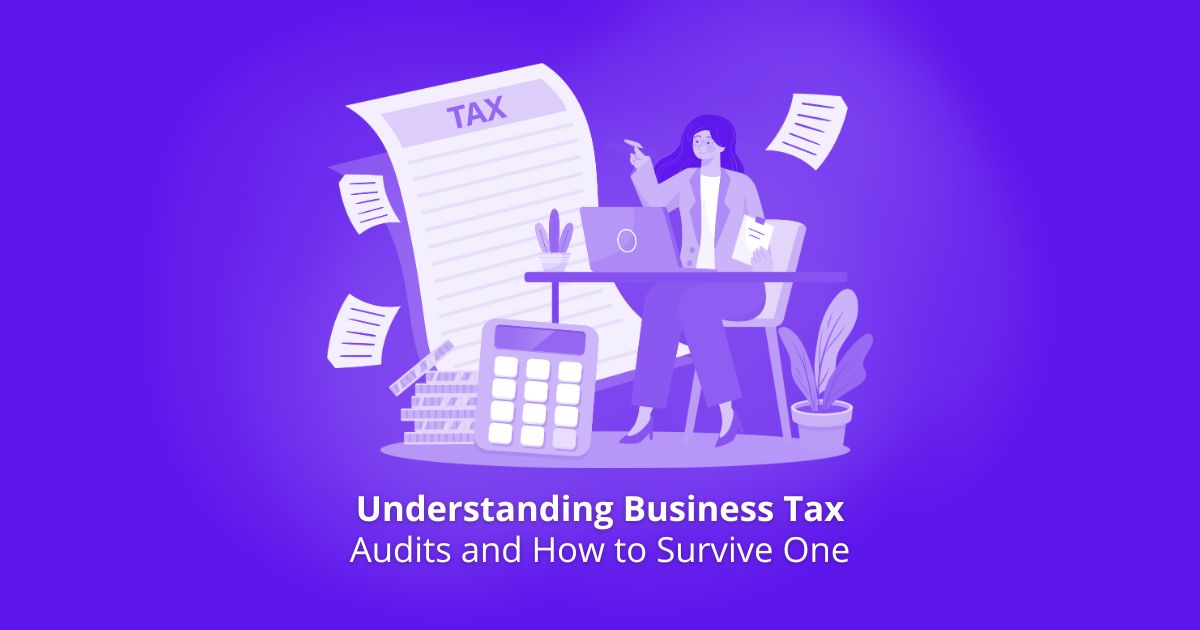Disclaimer:
The information provided in this article is for general informational purposes only and is not intended as legal, tax, or financial advice. While efforts are made to keep the content accurate and up to date, tax laws and regulations are subject to change and may vary based on individual circumstances. Readers are advised to consult with a qualified tax professional, accountant, or legal advisor regarding their specific situation before taking any action related to business tax audits. The author and publisher assume no responsibility or liability for any errors, omissions, or outcomes resulting from the use of this information.
A tax audit can often be an uncomfortable experience and one that can stir anxiety for business owners. This can be the case, especially if you’re unsure what triggered these additional checks and if you don’t know what it means for the future of the entire company. See info about tax audits when you go to this page.

If you’re a small business owner or one that’s managing to grow an enterprise, you might not want a taxman combing through your financial records and looking for discrepancies. This can lead to penalties, but this is something that you should be prepared for.
Knowing what the audit includes can reduce your stress and these routine checks are often not a direct accusation of fraud. It can happen to you through random selection or if the system detects statistical anomalies. Be prepared for this possibility in order to maintain the sustainability of your company.
What are the Cases that Can Trigger the Audit?
These don’t happen just because the IRS is unpredictable, even if they sometimes seem to. There are red flags that the authorities may notice, leading them to scrutinize your financial reports. It can be a discrepancy in the income that you’ve reported or an inconsistent record with your payroll. Those businesses that are heavily dealing with cash transactions on a daily basis may have a huge chance of being audited because they have greater potential for misreporting.
When there are also excessive expenses that don’t align with the income, this may also be checked. For example, companies that show low profits but have high travel expenses can find themselves to have grounds for suspicion. A sharp increase in deductions will also prompt the taxman to have a closer look at your returns.
Sometimes, the statistical formulas used by computer algorithms can also trigger a random selection even if what you’ve submitted is accurate. Just make sure that all of your finances are documented every year, so you won’t worry when reviews are coming in.
What to Expect When You Receive One?

You’ll get a formal letter by mail that will outline the information that you need to submit. It will generally depend on the complexity of your records, and the auditor will let you know the years that he needs to examine. You must also pass your income statements and other relevant records, like receipts, but make sure that you only submit what is needed.
Be organized at this point and make sure that you stay professional. Avoid offering additional paperwork that’s not relevant to what’s being asked, and respond in a timely manner. Be proactive because how you’re going to handle things will have a huge impact on the outcome of your audit.
The duration may vary depending on the size of your business, and most of the time, this can be resolved in just a few weeks. Keep a record of the communication that you’ve sent and received, and retain copies of the paperwork so you can provide explanations for discrepancies found.
How to Prepare Your Business throughout the Process?
Your best defense is to stay consistent and be accurate with the record-keeping. Properly document all of the transactions and support them with contracts or bank statements. Use a professional bookkeeping service if needed, and if you’re facing a penalty, consult a trustworthy tax attorney to help you navigate the process. They will help deal with the IRS if needed, and they can negotiate plea deals for you.
Conduct regular internal reviews that can help you spot some errors before the tax season to make sure that all the filings are correct. Stay informed with the changes in the regulations and make sure that all of your deductions are still legal.
The expertise of the right lawyer can help you know your rights as a business owner, and you make sure that your business documents are fairly evaluated. Having a legal advocate can increase the likelihood of a more favorable outcome, even if the auditor uncovers discrepancies.
Avoiding Future Audits Through Best Practices
Afterwards, you might want to breathe easy, but make sure that you reduce the likelihood of these assessments in the future. Being consistent with your income is going to go a long way. Avoid misclassifying workers by considering them as independent contractors when there’s no basis, because these actions can raise red flags.
When you’re not sure about a certain deduction, you can also consult an accountant before you file. They will improve the accuracy of your paperwork, and you’re demonstrating that you’re diligent enough when it comes to complying with the law. They are also knowledgeable about the tax codes, so you can minimize any mistakes in the future.
It will also help to keep your business and personal finances separate because co-mingling the money can make filing more difficult. Have a dedicated bank account for your company and document the business activities thoroughly to show financial boundaries, and so the authorities will view you as someone with financial discipline.
Moving Forward After an Audit

If there are no changes needed, then you’re often good to go, and your case files will be closed by the IRS. However, if there are discrepancies, the auditor can explain the adjustments that may result in additional interest or fines. You can appeal the decision if you don’t agree with the findings of the authorities, and you may want to hire a lawyer that you can read more info in this link: https://kids.britannica.com/kids/article/lawyer/611085 to help you with this process.
Regardless of the results, it’s best if you could use this as a stepping stone to identify any weaknesses in your accounting system. You should keep your records neat, so an audit won’t be a problem. Implement changes, when possible, to avoid similar problems down the road, and hire an accountant to keep everything accurate.
Some might find that these random checks are disruptive, but it’s a reminder that you need to properly manage your finances. With honest reporting coupled with professional guidance, your business can become more resilient in its operations.